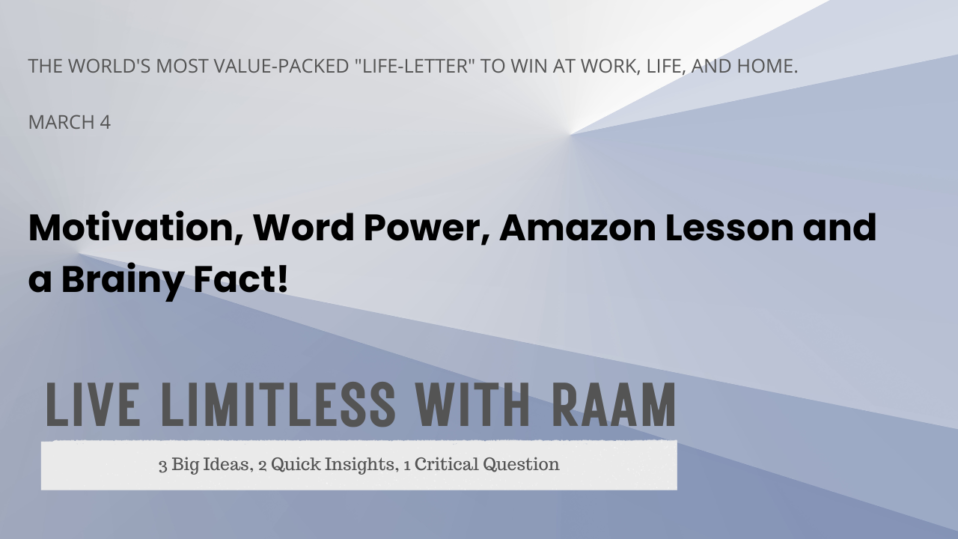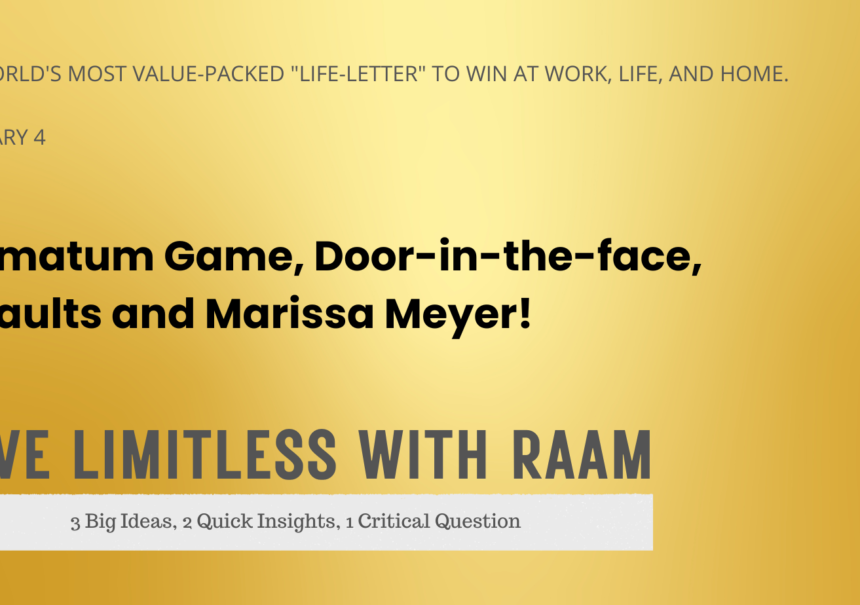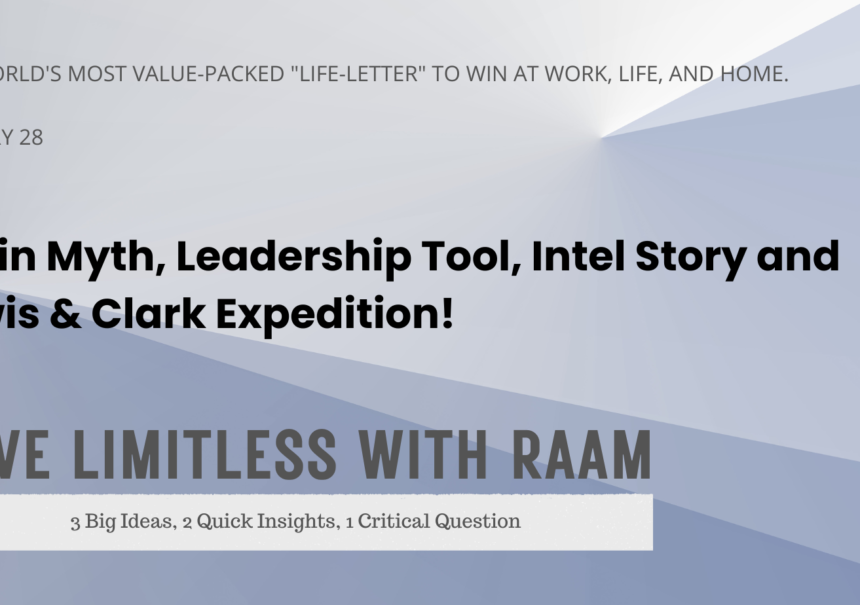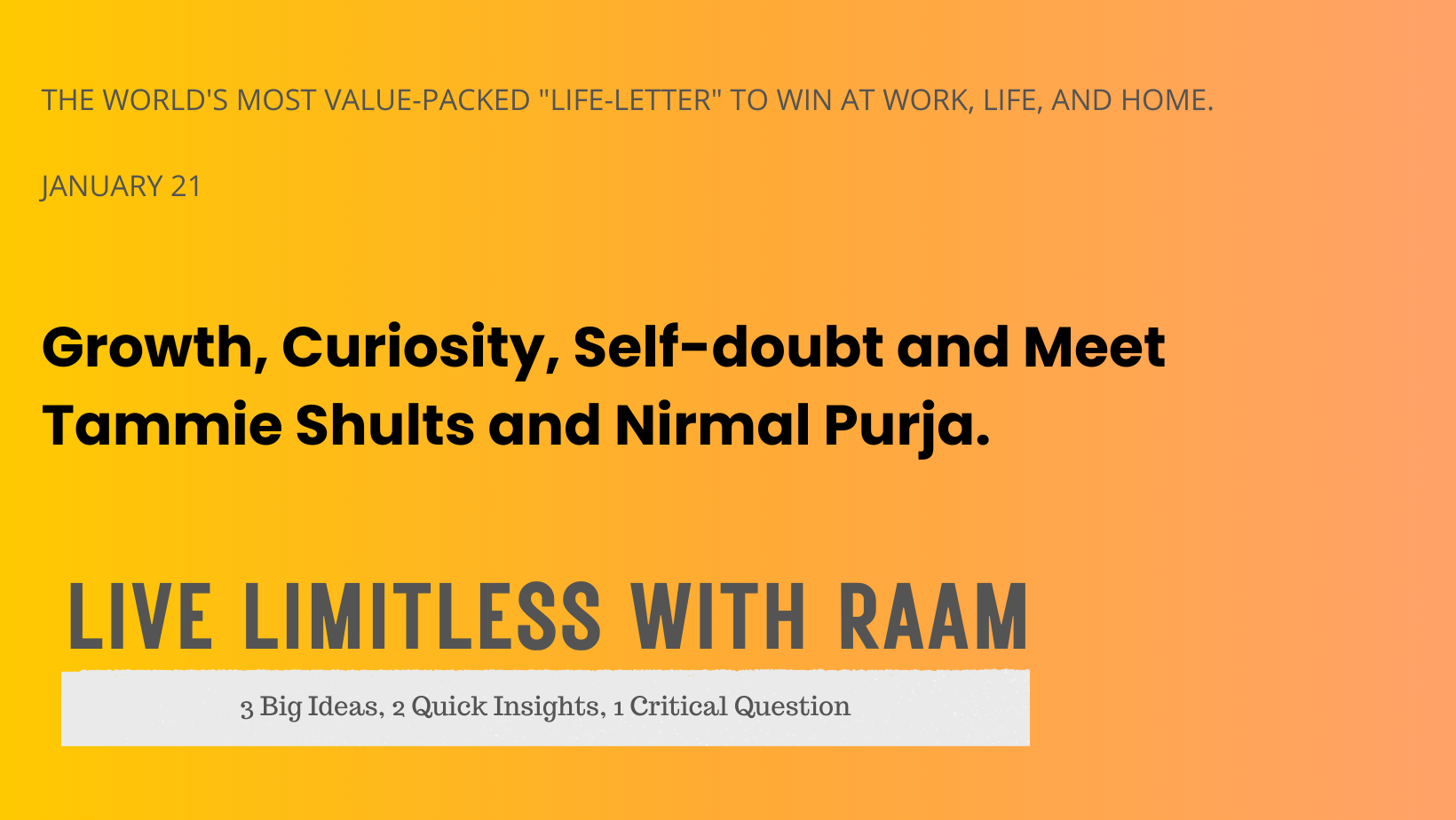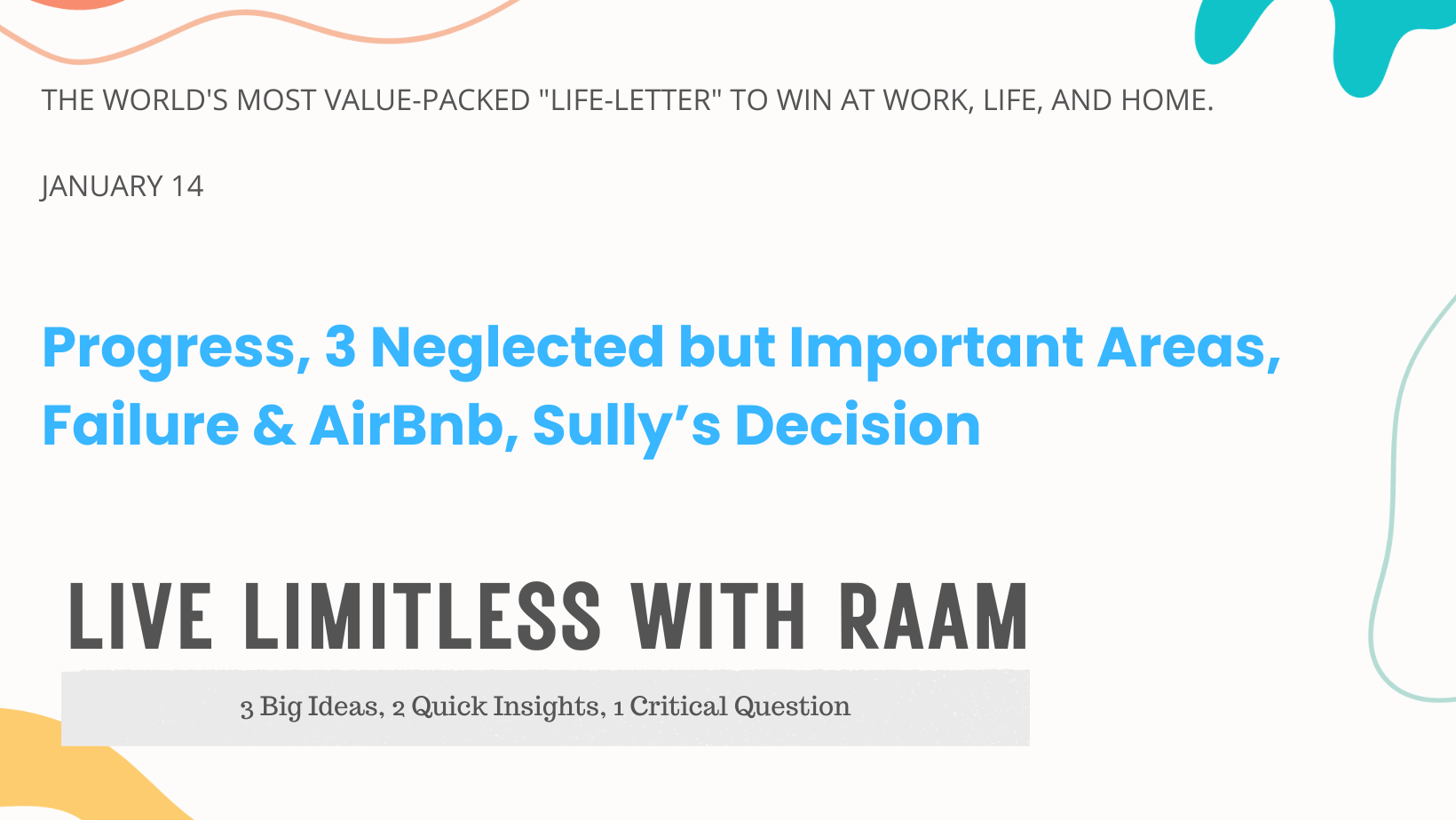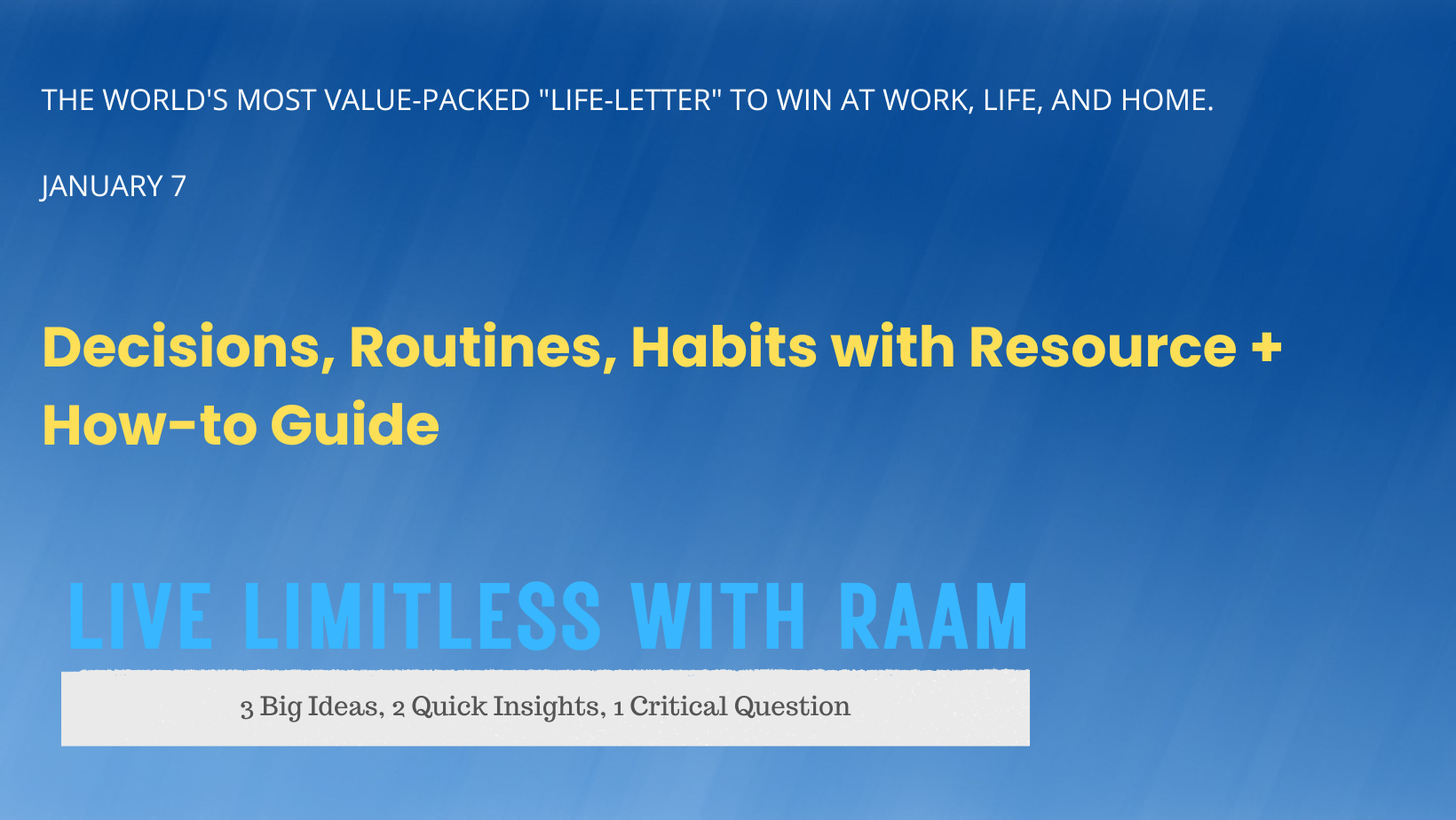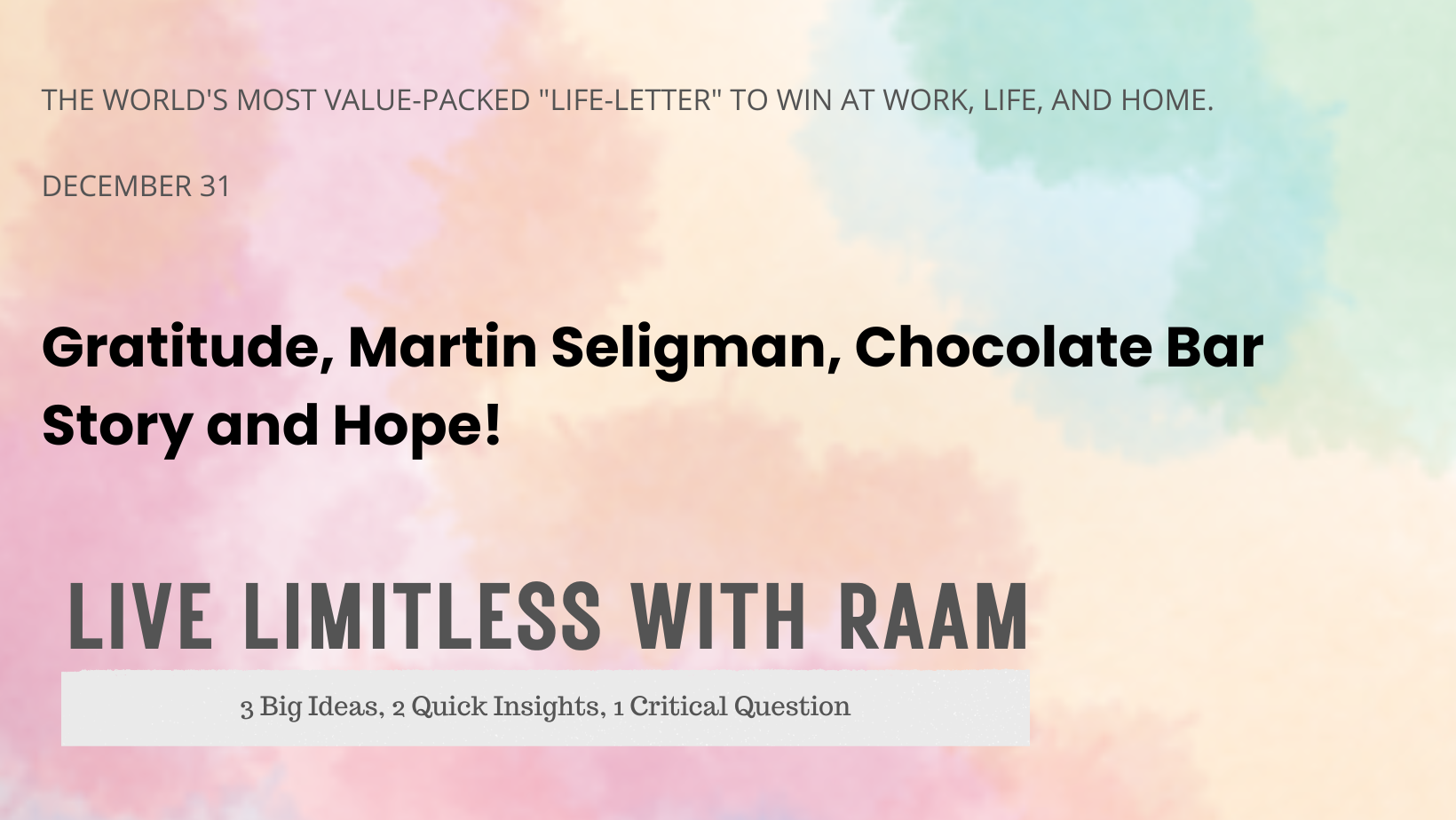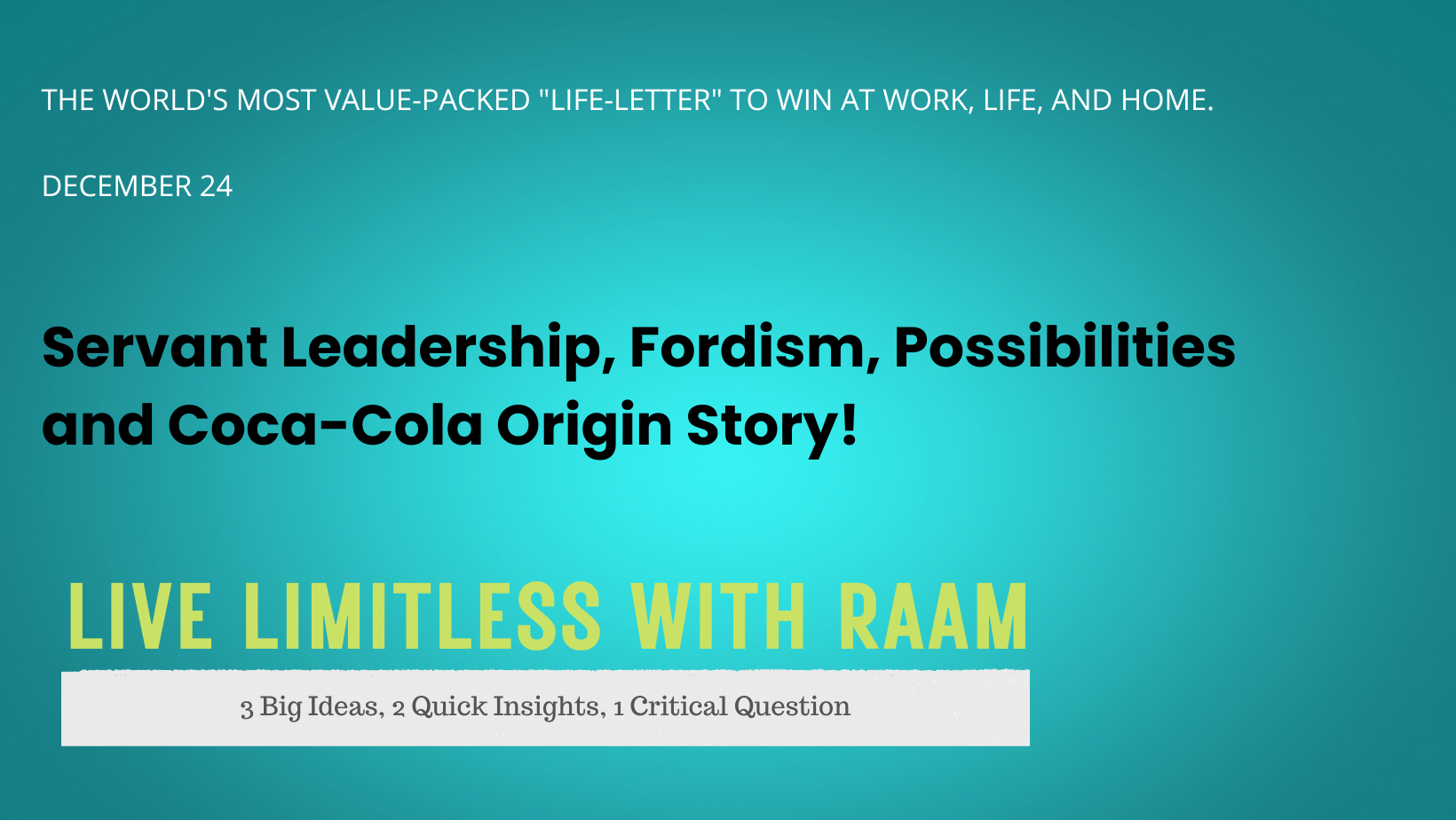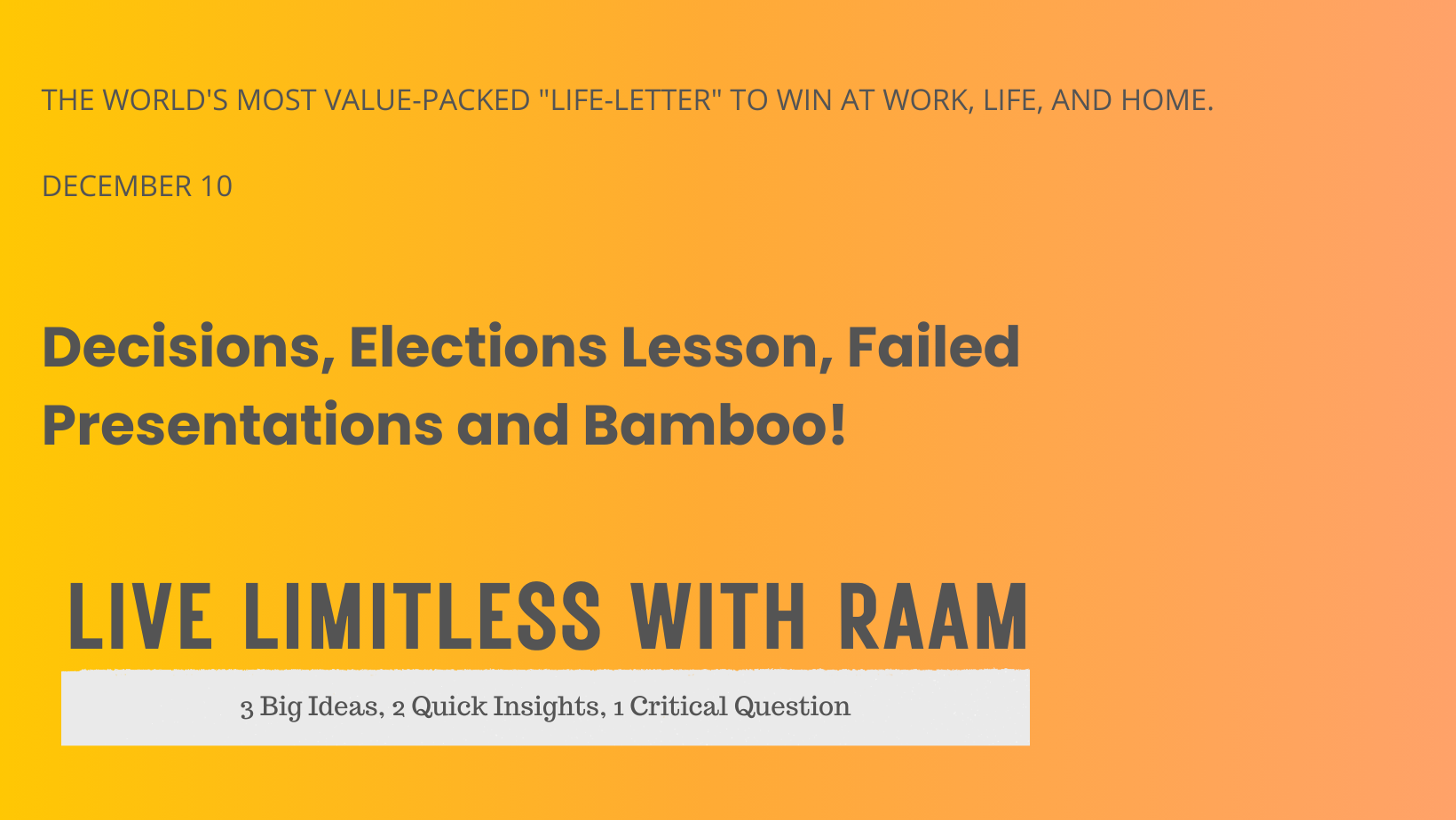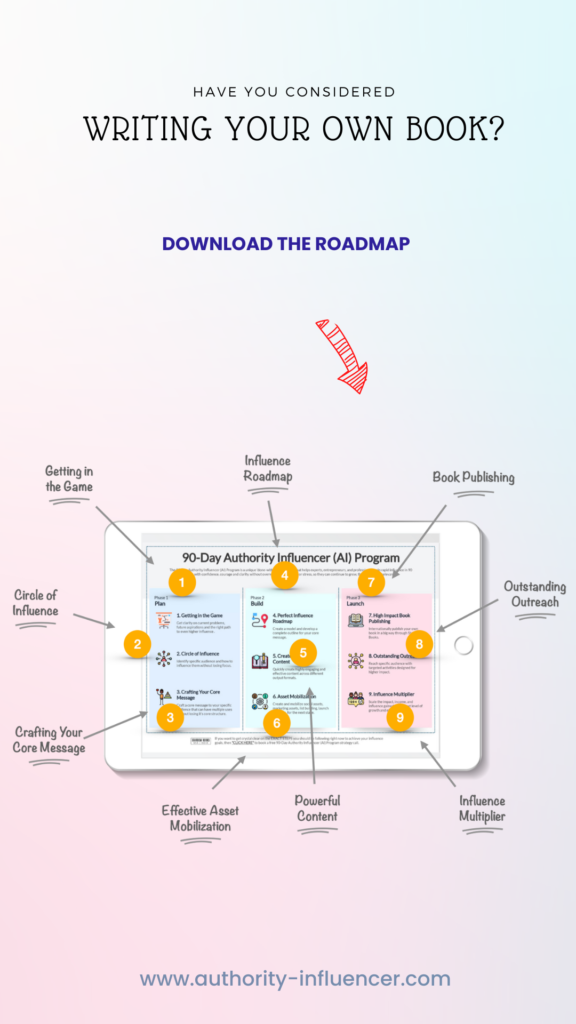Live Limitless with Raam
“The World’s Most Value-packed Newsletter Life-letter to WIN at Work, Life, and Home” with:
3 big ideas, tips or strategies
2 stories, quotes or case-studies
1 critical question to ask yourself
Live Limitless: Motivation, Word Power, Amazon Lesson and a Brainy Fact!
read on LIFELETTER.RAAMANAND.COM | MARCH 4, 2023
____________
3 Big Ideas, Tips or Strategies for this week
1. Motivation
Motivation refers to the driving force that compels an individual to take action towards a goal. It is a combination of internal and external factors that initiate, sustain, and direct behavior towards achieving a particular outcome. Motivation can stem from various sources such as personal values, beliefs, rewards, or recognition. It is a crucial aspect of personal and professional development as it helps individuals overcome obstacles, persist in the face of challenges, and achieve their desired goals.
2. Limiting Beliefs
Limiting beliefs are the self-imposed restrictions we place on ourselves, preventing us from reaching our full potential. These beliefs can be deeply ingrained, often stemming from childhood experiences, societal expectations, or negative self-talk. They can manifest as thoughts like “I’m not good enough,” “I don’t deserve success,” or “I’m too old to learn something new.” The power of limiting beliefs lies in their ability to hold us back from pursuing our dreams and taking risks. However, recognizing and challenging these beliefs can lead to personal growth and achieving our goals.
3. Word Power
Words have an incredible power to inspire, motivate, and change lives. They can move people to tears or fill them with hope and joy. The right words at the right time can provide comfort and solace during times of distress, while poorly chosen ones can cause harm and pain. Words can also shape our beliefs and perceptions, both of ourselves and the world around us. They can limit us or empower us to achieve great things. It is therefore crucial that we choose our words carefully and thoughtfully, understanding the impact they can have on ourselves and others.
_____________
2 Stories, Quotes, or Case-Studies for this week
1. Amazon Lesson
Amazon’s commitment to an obsessive focus on customers is one of the reasons behind its success. The company’s leadership understood that the key to customer loyalty and retention was providing exceptional service. One of the examples of this is the creation of Amazon’s next-day delivery option. This seemingly small service transformed the way people shop online and propelled Amazon’s growth to new heights.
The company’s leadership knew that in order to make this happen, they had to be completely obsessed with meeting the needs of their customers. While passion can provide the initial spark, it’s an all-consuming obsession that allows for the scaling of an idea into something extraordinary. This focus on customer obsession is something that all businesses can learn from, and it’s a reminder that true success comes from a relentless pursuit of excellence.
2. Brainy Fact
The human brain is a marvel of complexity, containing over 100 billion neurons that are interconnected to form a vast and intricate network. This complex system is responsible for our thoughts, emotions, and behaviors, and understanding it can provide valuable insights into how we can improve our lives.
One key lesson we can learn from the brain’s network of neurons is the importance of making connections. Just as each neuron is connected to tens of thousands of others, we can benefit from building connections and relationships in our personal and professional lives. By reaching out to others and building a strong network of support, we can expand our horizons and achieve more than we ever thought possible.
_____________
1 Critical Question to Ask Yourself
Our behavior is a reflection of our belief systems. There are a number of factors that build, refine, edit, and execute your behavioural patterns on a daily basis.
“What are my belief systems and are they helping me grow?”
Did you like this week’s “Life-letter”? Then, don’t keep this to yourself. Share it with others.
Share this life-letter on Twitter, Facebook, Linkedin, WhatsApp or via email.
Or, copy and paste the link below:
http://lifeletter.raamanand.com
Let’s meet again. Until then, Keep Smiling… Believe in Yourself… and Get all the Best Things in Life,
Raam Anand
Publishing Coach to hundreds of first-time authors around the world
Publisher & Chief Editor at Stardom Books (USA/India)
Author of the International Bestseller, Write Now
